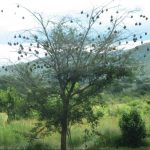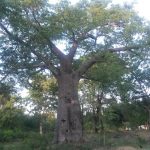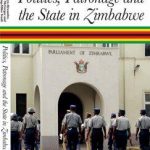Zimbabwe Gender Diversity – Homosexuality
“Africa’s Paradise!” – This is how the British colonial rulers and the Zimbabwean tourism industry raved about Zimbabwe, the former Rhodesia. As a result of the political and economic decline from the year 2000, the former granary became a recipient country for emergency and disaster aid.
Country overview
The land between the Zambezi and Limpopo rivers was named Zimbabwe in 1980. The name refers to evidence of an earlier high culture. Zimbabwe is divided into different vegetation zones and is ideal for agriculture.
History
According to payhelpcenter, the state of Zimbabwe was established in 1980. It refers to pre-colonial empires. After a war of independence, he replaced the settler colony of Rhodesia. During the colonial period, large white farmers had appropriated fertile cultivation areas. The black majority of the population lost their livelihoods. Large farmers have been forcibly expropriated since 2000. The land question is still a political issue today.
Society
Today’s society in Zimbabwe is divided into different social groups, which can be traced back to different historical waves of immigration and the legacy of the settler colony. The geographical and ecological conditions also have an impact on settlement and contacts with neighboring countries.
Everyday life
The diversity of Zimbabwe can be seen when traveling and working longer. The people are very hospitable and well educated. Internal contradictions and rapid developments encourage visitors and development experts to repeatedly reflect on their own points of view.
Official name: Republic of Zimbabwe
Area: 390,757 km²
Residents: 14.5 million (2020, estimated)
Growth of population: 1.87% (2020, estimated)
Seat of government: Harare
Official language: English
Regional languages: Shona, Ndebele
Alphabetized adults: Women (84.5%), men (88.5%) (2015)
Major religions: 87.4% Christians, 1.5% traditionally believers in 2015
Urban population: 32.20% (2018)
Life expectancy: 62.6 years women / 59.5 years men (2018)
Gender Inequality Index (GII): Rank 126 of 162 (2018)
Number of births per woman: 3.63 in 2020 (estimated)
Infant mortality: 54.6 per 1000 live births (2020)
Homosexuality is in Zimbabwe legally prohibited. Homosexual acts are prosecuted. The criminalization goes back to the colonial times and was not revised according to human rights standards after political independence in 1980. Rather, the existing homophobic legislation was tightened in 2006. Gay men are particularly hard hit by law enforcement and imprisonment. Homophobic violence forces some to flee the country. Same-sex marriages are prohibited. The new constitution of 2013 prohibits discrimination, but does not refer to people of different gender identities or sexual orientations, although their interest groups do had requested. The abbreviation LGBTIQ is used as a generic term for this politically discriminated and socially marginalized group: lesbian, gay, bi *, trans *, inter * sexual and queer, individual initiatives express their views on themselves.
Politically motivated hostility from the government, especially from the former President Robert Mugabe, happened, for example, during the international book fair in Harare in early August 1995 and during the heroes’ memorial service a few weeks later. Homophobic hate speech by high-ranking politicians led to attacks on homosexuals, arrests and impairment of the work of homosexual organizations, for example by government informers and physical violence by state security forces. They repeatedly attacked staff from the Gay and Lesbians of Zimbabwe (GALZ) advocacy group.
This internationally recognized organization offers a wide range of advice for LGBTIQ people in Zimbabwe, for example on HIV prevention and AIDS treatment. It is true that HIV-positive homosexuals should also receive advice in state health facilities, but this is far from being the practice. GALZ is also committed to tolerance in the media sector and towards church representatives as well as in the world of work – i.e. towards entrepreneurs and trade unions.
Research on homosexuality in Zimbabwe confirms that, contrary to the claims made by some government politicians and church representatives, homosexuality is not an import from Europe, but homophobia. Homosexuality was widespread in the pre-colonial societies of Zimbabwe, as documented by terms in the local languages, and homosexuals were tolerated. The British colonial administration, under pressure from Christian missionaries who scandalized same-sex sexual practices between miners in isolated mine complexes, criminalized homosexual acts as immorality. After political independence, homosexuals became scapegoats for social tensions that ultimately had political and economic causes, especially in times of economic crisis – for example after the problematic introduction of economic structural adjustment programs in the 1990’s. Homophobic discourses mixed homosexuality and pedophilia, for example the rejection of gay teachers by parents; this was particularly widespread during soaring HIV and AIDS rates and cuts in government spending in the health sector.
LGBTIQ organizations, such as those of lesbians, perform important human rights work that is also perceived as such internationally. Nevertheless, as agitators of Western donors, they are attacked by those in power and threatened by employees of the state security apparatus.













